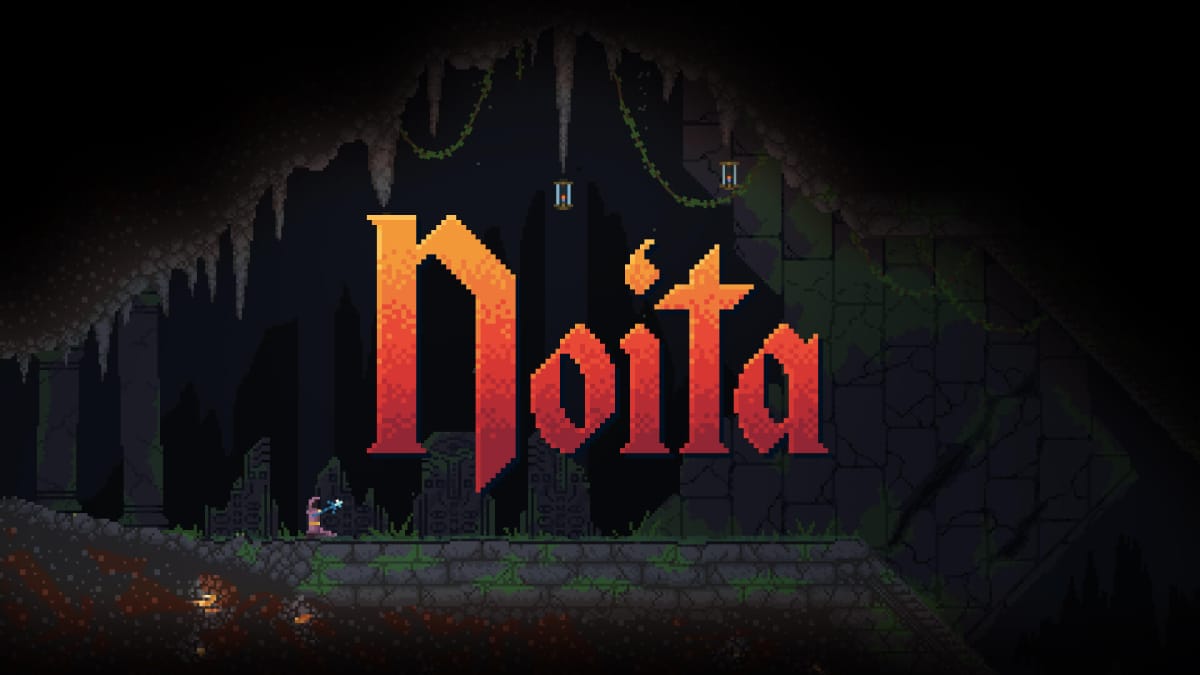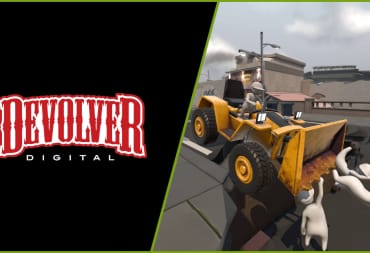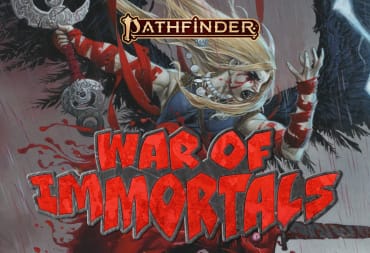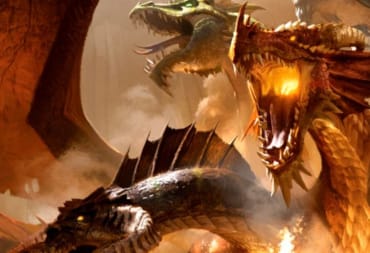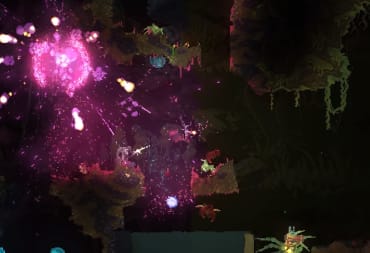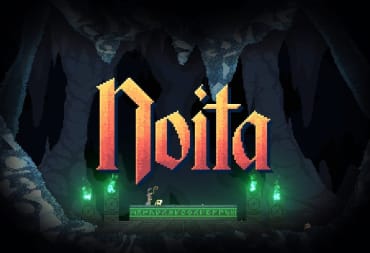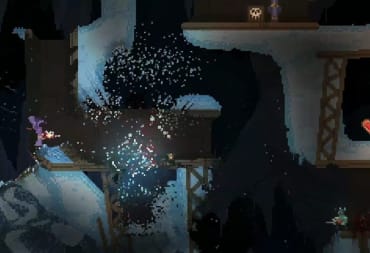The rogue-lite genre sits in an uncomfortable sphere, it is is both rather oversaturated and highly criticised. They all tend to be built of the same practices, ideas and mechanics leaving them feeling awfully familiar. Noita does not feel familiar. This is one of its biggest strengths and what’s kept me coming back over the last week.
Starting off, I was greeted to the entrance of a deep cave and a few keys operating as a short tutorial. After reading them, shooting with the second wand and subsequently blowing myself up, I delved deeper into the abyss that awaited me. Fundamentally this is part of Noita’s charm. It could have warned me that my second attack would fire a bomb but it didn’t, it could have told me that bomb would blow up the surrounding environment but it didn’t. I had to learn from my mistakes or I would die. Needless, to say, I died a lot in my time with Noita.
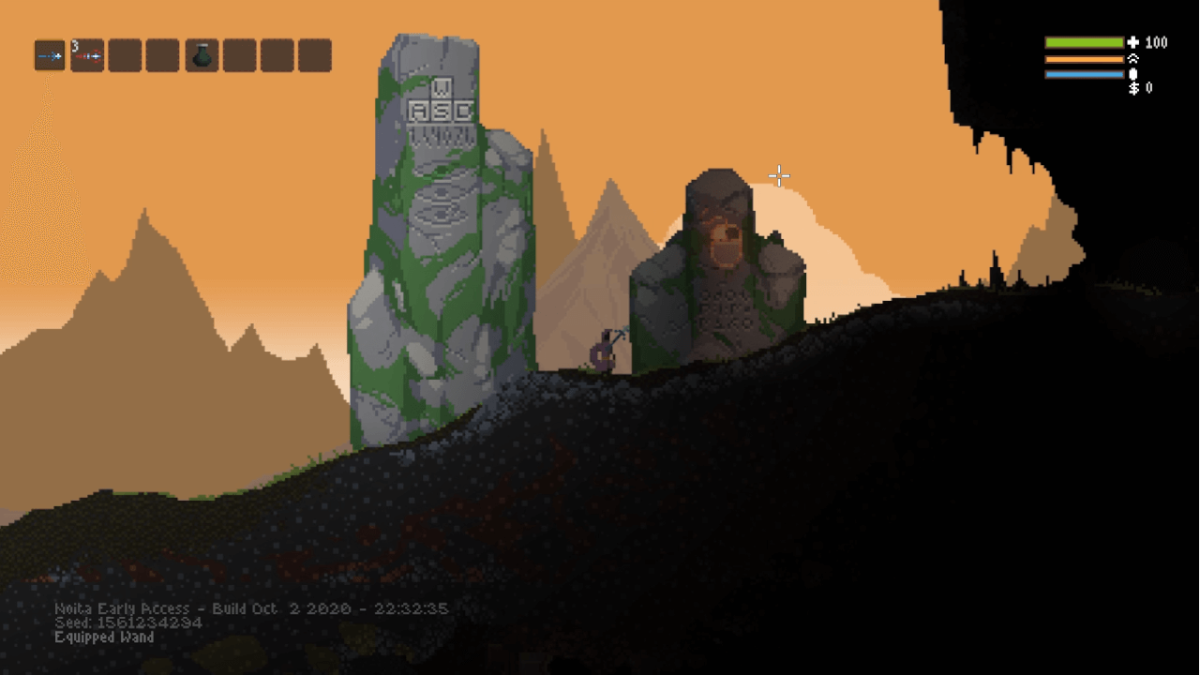
Going even deeper into the cave, I found a barrel. Naturally, I shot it and it leaked some form of brown liquid. After investigating its properties like what it does to my character and its environment, the fire from the bomb earlier on had crept its way down to fall narrowly above my character. I misclicked, walked into it and combusted, dying a fiery death. The brown liquid was oil, that was my first run. Looking back on it, every single poor decision I made there was avoidable making that death wholly my own mistake. This is what makes Noita so gruelling yet so, so satisfying
Before getting into the nitty-gritty (and there’s a lot of that) let’s talk about what Noita is, in a basic sense. It plays somewhat like a twin-stick shooter except your gun is replaced with a multitude of customizable wands. Your goal is to reach the bottom of the cave, step into a teleporter, wake up in a new system and continue this cycle until you win or die. At the top right of the screen is your health, mana and boost. Mana and health are self-explanatory but boost adds a nice sense of verticality to a game based around blowing up everything. Well, you technically have the option to take a structured path to your objective but, with bombs and a practical jetpack at your command, why wouldn’t you blow everything up?
The music and art manages to contrast these two playstyles delicately. When first stepping into the cave, you are met with complete silence followed by the occasional drip of water. You can interact with things like gold or a shiny wand but it stays rather calm until you eventually start antagonizing the living world around you. Spotting enemies reactively livens up the music much like that of the impeccable Breath of the Wild. Noita feels very lonely for big portions of the game until, suddenly, you are overwhelmed by creatures functionally protecting their ecosystem. You are an invader but you have loot, wands and infinite lives at your disposal.
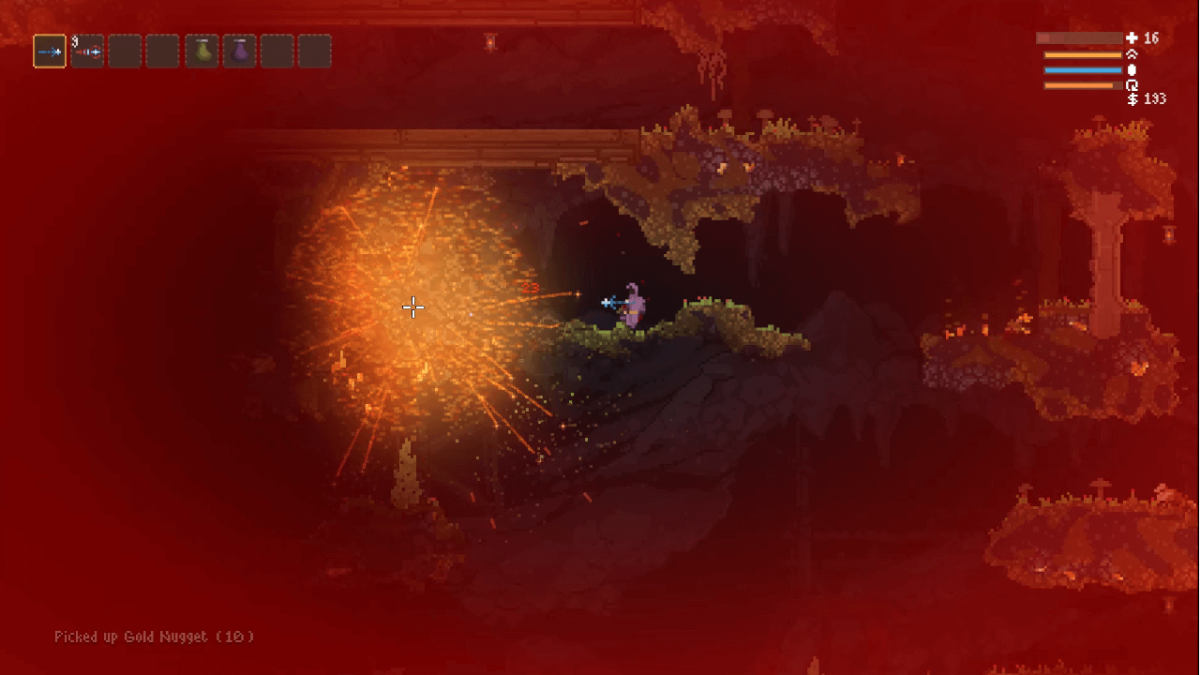
The art of Noita, like the game itself, is deceptively simple. You could be mistaken believing it’s one of many other pixel art games upon first inspection but what makes it shine is seeing it in motion. A simple screenshot like those above and below doesn’t quite do it justice. Seeing fire organically tear apart wood beams and acid rip through stone shows a sad kind of prettiness. The prettiness of atrophy is something Noita is well versed in. The world, enemies and characters suffer from their own circumstances and the fate that has brought you upon them. Noone really feels all that secure or good. You make your way through and you win. To do so, you might need to spend some of your loot to get better equipment or perks but that’s the main form of sociality you really have.
The systems that make this function are great. To customize your wand, you take out and fit in new components that change its properties. You could gut an all-destroying bomb maker and turn it into a creator of water. You can then take out its water properties and make it fire infinite rounds of quick-firing acid. This level of freedom is enunciated by your inventory slots. Immediately, you have four equipable slots, all for different wands. You might choose to have a few main functions for a general consistency or fill your loadout with powerful but limited blasts of firepower. Ultimately, the choice is yours. This is further punctuated by the perk system. After each area, you have the choice of a perk that affects the rest of the run. This can be something small like extra speed or something consistent like a shield.
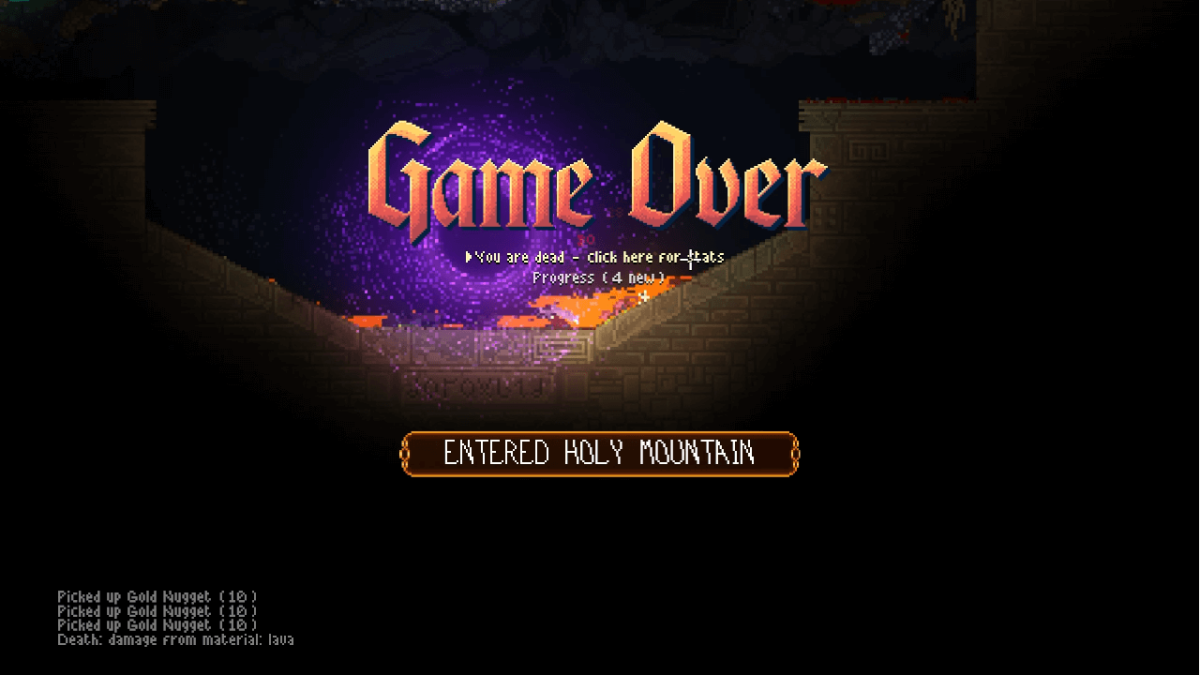
Consistency is something Noita is great at but Noita players are not. I faced practically no technical issues in my time with Noita but my skills varied wildly. One run, I might make it through a multitude of levels bobbing and weaving through enemy attacks and my own explosives, in another I might set myself on fire and land in oil believing it to be water. At points, I am great, at others, I’m less than impressive, to put it charitably.
Noita is a very impressive title. A lesser developer might take its rogue-lite design, its physics-based world, and its creative spell making and get a title like any other, Nolla games does not do this. Noita manages to ooze charm, creativity, and polish in a way that is so rare for a game of its scope. For all the subtle ways Noita’s intricate design might fall down, it, unlike the physics laden world it inhabits, stays perfectly buoyant throughout
TechRaptor reviewed Noita on PC using a copy provided by the publisher.
Review Summary
Pros
- Interesting Mechanics
- Great World
- Fantastic Physics
- Lots of Replay-ability
Cons
- Difficulty might put off newcomers
Have a tip, or want to point out something we missed? Leave a Comment or e-mail us at tips@techraptor.net
